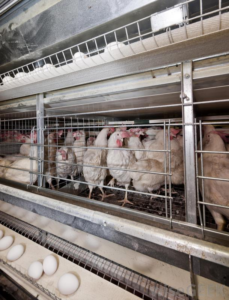I grew up on a commercial poultry farm and had a battery raised eggs my whole life. It’s only after joining farmizen that I had my first free range and naati chicken eggs.
Was there any difference in taste ? Yes, the free range and naati eggs had a certain distinct flavor compared to normal eggs which are almost bland. Are these eggs nutritionally superior and healthier than the eggs we raised on our farm ?. Definitely yes, all the nutrition that our chickens got was processed feed, soybean for protein, maize or any other cereal which was cheapest at the time for carbohydrate. Powdered shellfish was added so that the chicken got the calcium needed for the egg shells. Dried fish used to be added as an additional source of protein.
I was horrified to learn later that this dried fish which we used as feed was ocean bycatch. What is bycatch is a fish or other marine species that is caught unintentionally while fishing for specific species or sizes of wildlife. Bycatch is either the wrong species, the wrong sex, or is undersized or juveniles of the target species. If not for the demand by the poultry industry these bycatch would normally not be caught or be dumped back to grow, so commercial poultry farming was emptying our oceans.
Do read this PDF if you want to know more about bycatch and its threat to marine biodiversity
Was there anything else we used on the farm ? Antibiotics and yes we bought them by the kilo from manufacturers, when you cram in 4-6 chickens in a tiny cage there will be stress and diseases and without high usage of these antibiotics commercial poultry farming would be impossible. So each egg would have small amount of this antibiotic.
On the other hand the naati and free range farms i visited the birds had free access to outdoors and would return to their coops only at night. Some supplemental feed was given in the form of feed made from cereal sourced locally or grown in the farm itself. The birds would feed on insects, weeds etc on the farm providing valuable service to the farmer. Some farmers would even feed them herbs and moringa leaves to keep them healthy.
So nutritionally these eggs were definitely better than other eggs, because of nutritionally diverse food they were foraging on. Ecologically speaking these were miles ahead of the battery farmed eggs I was used to.
The only real problem with these eggs was spoilage, store bought eggs would rarely spoil even after 10 day after we brought them home, but free range ones would sometimes go bad in a week. To find out why this was happening I did a little more digging around.
Why do free range eggs spoil faster ?
How do eggs go bad? Like all food products, it’s because of bacteria. Eggs have a cuticle made of proteins on the shell protecting the inner yolk from bacteria. Both normal and free range eggs have this cuticle. Commercially sold eggs in India are not yet washed, sterilised and sprayed with preservatives like in some other countries. So both eggs should actually last the same time.

The answer lies in where the eggs are laid, Cage raised chicken lay their eggs in a almost sterile environment like shown below, the egg rolls away as soon as its laid into a receptacle where they are collected and packed

Whereas the free range chicken normally lay their eggs on hay, green grass or sometime directly on the ground

During monsoons these surfaces could be wet and the egg which is laid on these wet surfaces become wet too. This causes the cuticle to become damaged and bacteria has easier access to the yolk and the eggs spoil faster.
The antibiotics used in poultry farms may also play a small role in keeping normal eggs good for longer, but based on frequency of complaints during rains i think the moisture has to do more with free range egg spoilage than anything else
So should you stop buying free range eggs during monsoon ?
No, these cases are very rare and should not stop you from consuming eggs which are nutritionally better and antibiotic free
So can anything be done to avoid spoilage of eggs ?
A simple thing you can do is to store the eggs received in the refrigerator. Storing eggs in the refrigerator does not affect their taste or nutrition in any way. This should keep the eggs good for a couple of weeks. This method of storage can be useful during monsoon when incidences of egg spoilage are more.

Comment